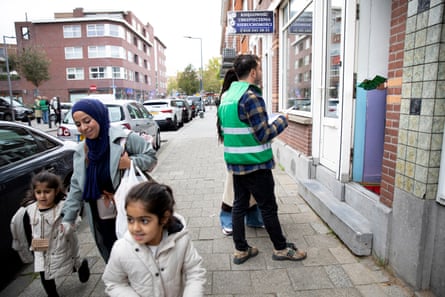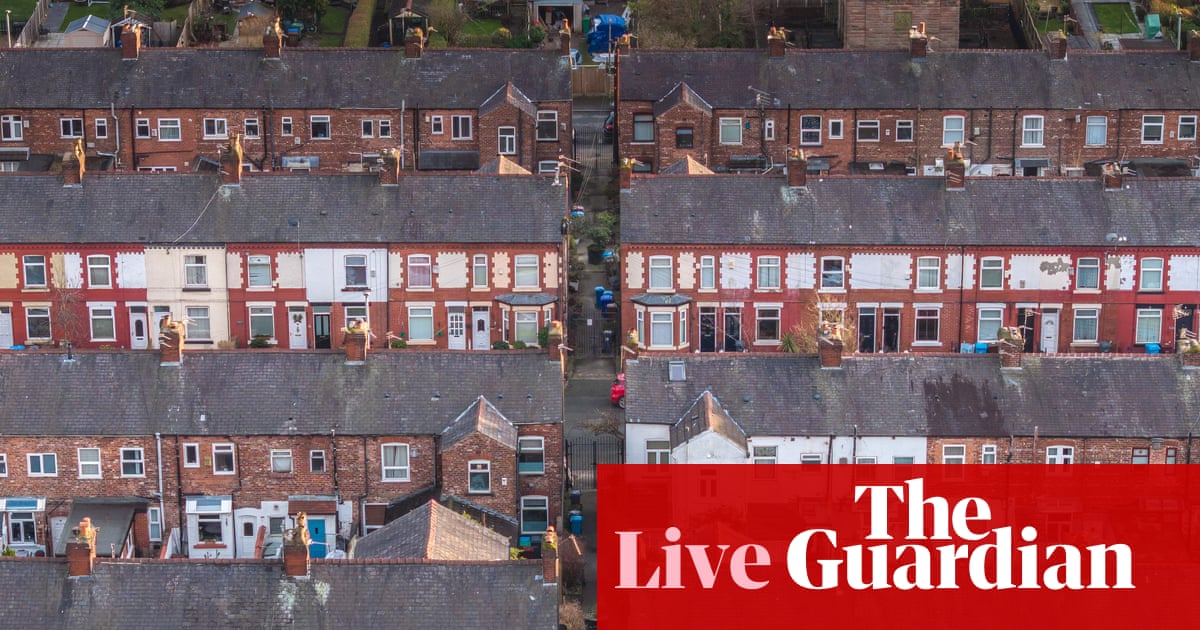Carlos Fernandes is proud of the metalwork he does on Dutch superyachts that sail the world. But the Portuguese migrant worker was surprised to hear he might be paying hundreds of euros too much in monthly rent for his family’s apartment.
“We found it and we moved in,” he said. “It should be between €800 and €1,115 but we are paying €1,380.”
He was one of the first to answer the door during an awareness campaign in Rotterdam this month. Volunteers from the Dutch city’s council have knocked at hundreds of households to inform people about its new powers to combat substandard living conditions, illegal temporary contracts and exploitative rents.
Across the street, housing policy manager Tamara Wanker has just found a house in which four people from Poland are paying €450 a month – twice the legal rent the landlord can charge. “We call these people new Rotterdammers, newcomers, and they deserve a home just like anyone else,” she said.
What those newcomers often find, however, is high rents, overcrowding, exploitative landlords and unfair evictions, said enforcement coordinator Reinier van Oversteeg. “We come across four, five, six people in a very small house, where they sometimes sleep in a ‘warm bed’ – one gets out, and the other gets in,” he said. “The homes are badly maintained, people’s salaries are docked for housing, and then when the work is done, they are put straight on to the street.”

With general elections in the Netherlands in two weeks, the national housing crisis is a big concern for voters. The far-right Party for Freedom (PVV) of Geert Wilders, which collapsed the last government, is still leading in the polls and still blaming migrants and refugees for the shortage of decent housing and its exorbitant cost.
An anti-immigration and housing protest in The Hague last month descended into riots, with Nazi salutes and attacks on police, journalists and the liberal-democratic D66 party office.
“People are very unsatisfied about housing and you blame your favourite enemy,” said Koen Haegens, economics editor at De Groene Amsterdammer. “Some parties are saying it’s the foreigners. Others are saying it’s the environmentalist protectionists making it too difficult to build. The Christian parties are saying it’s parents who get divorced.”
According to Statistics Netherlands, the Dutch population has grown, mainly through net migration, by around a million in the last decade to about 18 million. People seeking asylum formed just 12% of immigrants last year; the majority of new arrivals were labour migrants who had come to work in agriculture, meat processing, manufacturing and distribution. For Wilders, who claimed last year that the Dutch housing backlog “simply cannot match the open-border policy and the huge population growth”, immigrants provide a useful scapegoat.
But experts say that in cities such as Rotterdam, The Hague and Amsterdam, these workers – up to 800,000 people – should be recognised as some of the biggest victims of the housing crisis, rather than blamed for making it worse.
Peter Boelhouwer, professor of housing systems at TU Delft, said he could see the reality of life for thousands of seasonal pickers working near his home in Westland who are not housed locally by their employers. “What’s happening is dramatic,” he said. “They end up in The Hague in miserable conditions.”
Boelhouwer said the Netherlands’ shortage of about 400,000 houses had several causes, not least a sharp decrease in building and an increase in single-person households. “There are ever more older people living alone, especially women,” he said. “And production has fallen away significantly since the global financial crisis in 2008.”
In 2023, at the end of a visit to the country, the UN’s special rapporteur on adequate housing urged people not to see the Dutch housing crisis as anything but the result of “two or more decades” of bad policymaking.
“The housing crisis is real. But too often migrants and foreigners are blamed for it. I want to clearly say: the housing crisis is not a migration crisis,” Balakrishnan Rajagopal said. “It is a crisis resulting from a series of poor policy choices, and overall, from a lack of enforceable legal recognition of the right to adequate housing.”

While housing is a topic across the political spectrum, Dutch voters do not feel the pain equally. A tax break for the 57% of households that own their own home fuels inequality, inflates prices and leads to fewer rentals, economists say. At the same time, the Netherlands has Europe’s largest social housing sector and people typically have more rooms per person than the European average – figures that mask how acute the pressure is on young renters and migrants, according to Haegens.
A national commission has said the Netherlands needs to grow its population to 19 or 20 million by 2050 if it is to care for an ageing population and maintain its living standards. While all parties propose housebuilding, centrist and leftwing parties like GreenLeft-Labour and D66 argue that controlling labour migration, by cutting the number of businesses that rely heavily on it such as distribution centres and slaughterhouses, could ease the housing crisis.
But critics say that would necessitate a wider conversation about Dutch perks, such as generous sick leave and Europe’s shortest working week. Paul de Beer, emeritus professor in labour relations at the University of Amsterdam and member of the government’s migration advisory council, said it was not possible to talk about reducing foreign labour without also talking about raising the retirement age and working more hours. “That debate has not started yet,” he said.
Back on the streets of Rotterdam, the council is focusing on enforcing new tenant protections, even if many small landlords are selling up. “We’ve seen too many cases of people paying far too much for small or poor-quality homes … several workers sharing a single room, paying double what the property is worth,” said Chantal Zeegers, vice-mayor for housing. “The new law finally gives us the legal tools to intervene.”

 3 months ago
53
3 months ago
53

















































